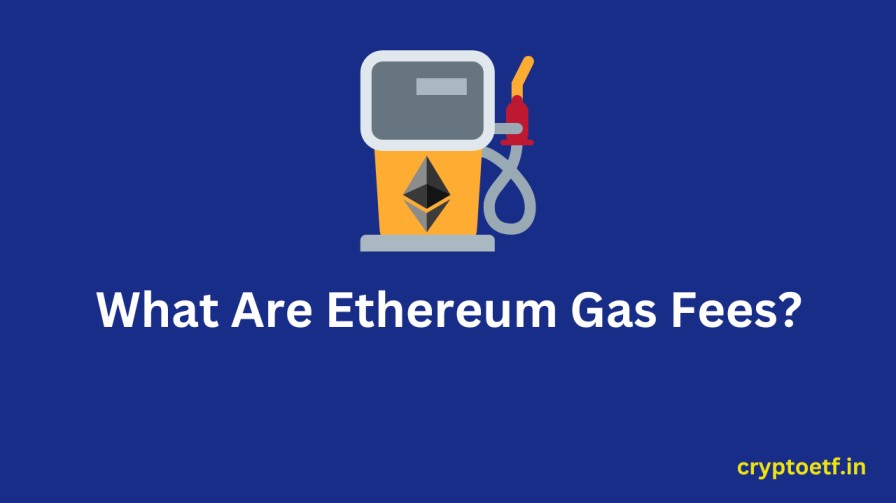Gas fees are an essential aspect of the Ethereum network, and they play a vital role in keeping the blockchain secure and decentralized. In this article, we will delve into what gas fees are, how they work, and their impact on the Ethereum network.
What are Gas Fees?
Gas fees are the cost of using the Ethereum network. Every transaction that takes place on the Ethereum blockchain requires a certain amount of computational resources to execute, and these resources are provided by nodes that run the Ethereum software. To incentivize these nodes to provide their resources, a fee is paid to them in the form of gas.
Gas is the unit of measurement for computational work on the Ethereum network. It’s a way to measure the amount of computational resources required to execute a transaction or run a smart contract. The amount of gas required for a transaction depends on its complexity and the current demand for network resources. When a user sends a transaction, they specify the maximum amount of gas they are willing to pay, and the transaction is executed as long as there are enough network resources available and the gas fee meets the minimum threshold.
How do Gas Fees Work?
Gas fees are determined by the market demand for network resources. When the demand for network resources is high, gas fees go up, and when the demand is low, gas fees go down. This means that gas fees can fluctuate widely, depending on the amount of network activity.
The gas price is measured in Gwei, which is a subunit of Ethereum. One Gwei is equivalent to 0.000000001 ETH. For example, if the gas price is 100 Gwei, it means that the fee for one unit of gas is 0.0000001 ETH.
The total cost of a transaction is calculated by multiplying the gas price by the amount of gas required for the transaction. For example, if a transaction requires 21,000 units of gas and the gas price is 100 Gwei, the total cost of the transaction would be 0.0021 ETH (21,000 gas x 100 Gwei/gas = 2,100,000 Gwei = 0.0021 ETH).
Why are gas fees important?
Gas fees are important for several reasons:
1. Incentivizing miners
Gas fees are used to incentivize miners to process transactions. Miners are rewarded with a portion of the gas fee for adding transactions to the blockchain. This reward serves as an incentive for miners to prioritize transactions and add them to the blockchain.
2. Determining transaction speed
Gas fees determine how quickly transactions are processed. Transactions with higher gas fees are prioritized by miners and are added to the blockchain more quickly than transactions with lower gas fees. This means that users who pay higher gas fees can expect their transactions to be processed faster than users who pay lower gas fees.
3. Ensuring network security
Gas fees are also important for ensuring the security of the Ethereum network. Gas fees help prevent spam and denial-of-service attacks by requiring users to pay a fee to use the network. This fee makes it more difficult for attackers to flood the network with transactions and disrupt its operation.
How do gas fees affect users?
Gas fees can have a significant impact on users. Users who want their transactions to be processed quickly will need to pay higher gas fees. Users who are willing to wait longer for their transactions to be processed can pay lower gas fees. However, paying lower gas fees may result in longer wait times and may not be suitable for time-sensitive transactions.
Gas fees can also vary widely depending on the demand for block space. During periods of high demand, gas fees can be very high, making it expensive for users to use the Ethereum network. During periods of low demand, gas fees can be very low, making it more affordable for users to use the network.
Conclusion
Gas fees are an essential aspect of blockchain networks, particularly the Ethereum network. They are used to incentivize miners, determine transaction speed, and ensure network security. Gas fees can have a significant impact on users, with higher fees resulting in faster transaction processing and lower fees resulting in longer wait times. Understanding gas fees is crucial for anyone who wants to use the Ethereum network or any other blockchain network that uses gas fees.
- Mining Cryptocurrency: Choosing the Best Hardware for You (March 8, 2023)
- Blockchain Technology and its Application (March 8, 2023)
- How to Kill Bitcoin: – Can Bitcoin be Stopped? (March 7, 2023)
- Cryptography private key and public key (March 7, 2023)
- Fiat Currency vs Bitcoin: Understanding the Differences (March 6, 2023)
- CBDC vs Bitcoin: Key Differences 2023 (March 6, 2023)
- Bitcoin vs. Ethereum: What are the Difference? (March 5, 2023)
- What is a Blockchain Smart Contract? (March 5, 2023)
- Bitcoin Lightning Network and how does it work? (March 4, 2023)
- Monthly Crypto News February 2023 (March 3, 2023)
- Reasons to add Bitcoin to your portfolio (March 3, 2023)
- What Is a Cryptocurrency ATM And How Does It Work? (March 3, 2023)
- Can cryptocurrency go mainstream? (March 3, 2023)
- How Crypto Mining Stabilizes Power Grids (March 3, 2023)
- Debunking Common Misconceptions About Bitcoin (March 3, 2023)
Rabi is the founder of Cryptoetf.in and a regular contributor. He is passionate about the crypto world and keeps up-to-date with the latest developments, always eager to share his knowledge with readers.
